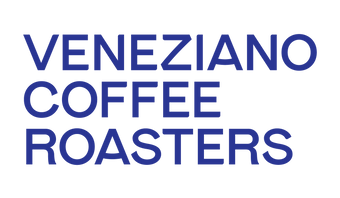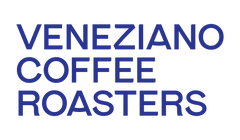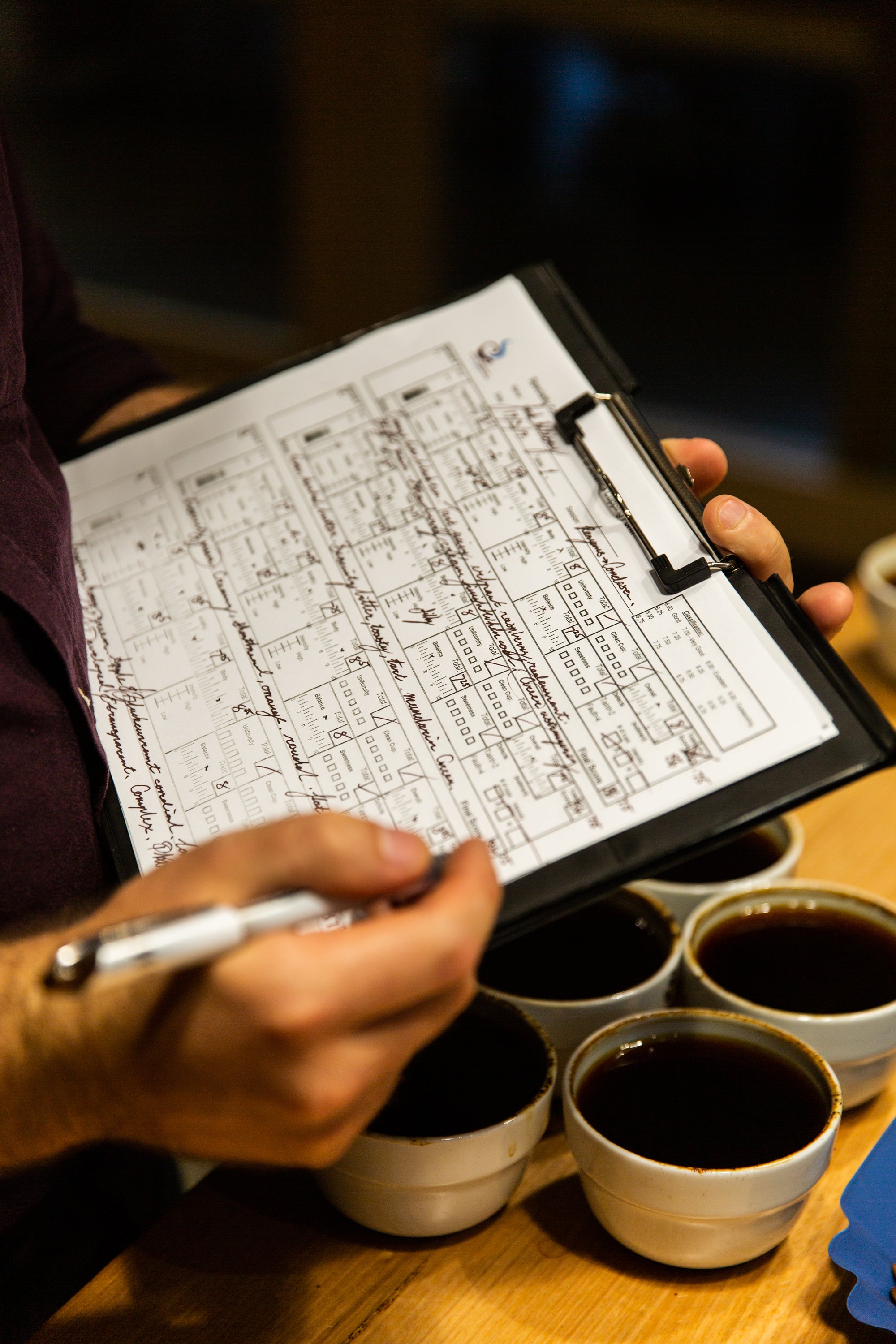– by Paul Bennetti, Senior Roaster & certified Q Grader
The Q grader program was developed by the Coffee Quality Institute (CQI) to establish a skilled and qualified group of individuals that could accurately assess and grade green Arabica coffee.
This has rewarded the coffee community in number of ways.
Firstly, it has created a common language amongst coffee professionals around the world. It focuses attention on and rewards quality coffee. Lastly it gives constructive feedback to coffee growers on where their coffee sits in the market as well as how they can improve the quality of their coffee. In short, we get better coffee and coffee farmers get more money for their coffee. Win-Win.
For more insight into the CQI and the work they do with the Q Arabica and R Robusta programs see their website coffeeinstitute.org.
Now the Program…
Q Graders grade coffee by giving it a numeric score out of 100. A coffee that scores 80 or more is rewarded with the title of “Specialty Coffee”. After cupping or tasting the coffee you assign a score for the different attributes found.
This is an example of the SCAA cupping form used by Q graders:
The Q course is made up of 20 individual tests (you’ll need to pass all 20 to gain your certification).
Some, but not all, of the tests include four x cupping flights, four x triangulations, a 100 question multiple choice exam, an organic acids and sensory skills test. The course is six full days which is broken down into three days of practice tests followed by three days of graded tests. The course is run by a a qualified Q grade instructor.
In my case it was coffee guru and all round nice guy Andrew Hetzel.
Andrew has a website that will give you great insight into the CQI programs and how to prepare for them. If you are seriously considering the Q course you should definitely check out his website coffeestrategies.com.
Recently, Veneziano Coffee Roasters took on the challenge (and succeeded) in certifying our new coffee lab in order to host a Q course. With much trepidation Veneziano signed myself and a few others up for the gruelling week of exams.
With the exhaustion and the shock of passing starting to fade away I’ve sat down to write a few tips that may, or may not help you pass your Q exam.
Listen to your instructor. I really can’t stress this point enough. Your instructor is going to be a wealth of knowledge. Not only is it going to make you a better cupper, it is also going to help you pass the 100 question exam. Your instructor will be subtly giving you the answers to a lot of the questions on the exam during the week. So listen up!
Cup with Q Graders. Understandably, this may not be so easy for everybody but if at all possible spend as much time cupping with Q Graders as you can. I was lucky enough to have two Q Graders at Veneziano and from cupping with them I was able to learn how to fill out the SCAA cupping form and how to calibrate myself with others. These are both vital aspects of the course.
Get lots of sleep. One thing that really surprised me was how physically tired I was by the end of the week. Sitting around and cupping lots of coffee can really take it out of you. Much more than I expected. So ensure to make sleep a priority during your course.
Have a game plan. I personally found that most of the exams are really daunting. Without a game plan I became overwhelmed and frazzled. Use the three days of practice testing to find system that works for you. Stay focused and methodical.
Trust your gut. This is something our instructor stressed a lot. Often people fail not because they did not know an answer, but rather because they changed their mind. This is particularly evident with the sensory skills test. Your gut instinct will usually be right. Trust it.
Look out for defects. During the four cupping exams your instructor will likely spike a bowl with a defect. It’s your job to identify the defective bowl and mark it accordingly on your score sheet. Failing to identify a bowl that’s been spiked is an automatic fail. Look out for defects and make sure you know how to record them on your cupping form.
Set realistic expectations. This may sound harsh but chances are you’re not going to pass. Out of our class of 14 only three people walked away with a certificate. The exam is extremely difficult. That being said, you only have to re-sit the tests you fail. So take each test one at a time, and every time you pass a component congratulate yourself. If you do fail something put it aside and don’t let it affect the rest of your week.
At the start of the week Craig Dickson, Managing Director of Veneziano Coffee Roasters told me not to worry about passing or failing but rather to look at the week ahead as an opportunity to enhance my general coffee knowledge and cupping ability. This is great advice. Regardless of whether you finish the week with a certificate or not, you will certainty have a greater appreciation for our coffee growers, expand your general coffee knowledge and be a more proficient cupper.
All said and done, thanks all for an amazing opportunity. An exhausting week well spent!
Veneziano Coffee Roasters will be holding another Q Course in September and will also be offering pre Q course preparation sessions to give students the best opportunity to pass. Stay tuned for more information. For expressions of interest please email sarah.ellul@venezianocoffee.com.au



